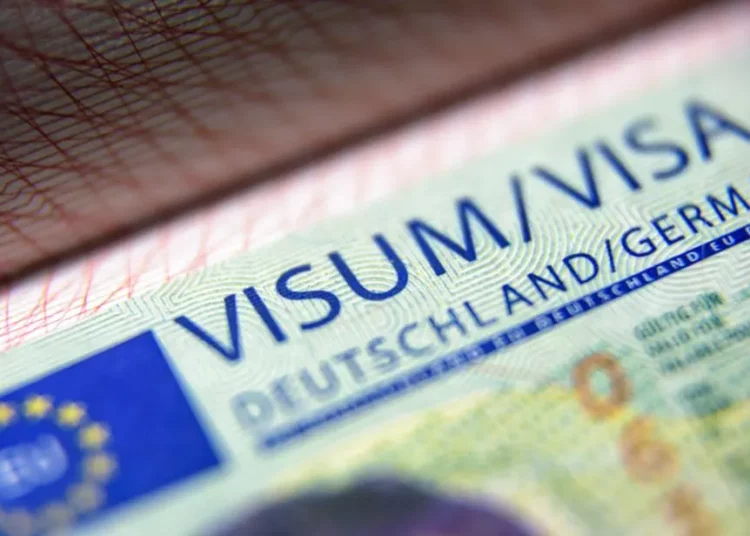Germany said it will abolish its global visa appeal mechanism, known as the remonstration procedure from July 1, 2025, eliminating a pathway for foreign nationals, including Nigerians, to challenge visa rejections directly through embassies.
The Federal Foreign Office of Germany announced the scrapping in an official update published on its website, along with clarifications on entry requirements for non-EU citizens planning long-term stays for work, study, or residence.
“The Federal Foreign Office has decided to abolish the appeal procedure against visa rejections worldwide as of July 1, 2025. This eliminates a legal remedy in the visa process that was not provided for by law but was previously granted voluntarily,” the statement read.
Despite the change, authorities said applicants will still have access to legal remedies through the courts and may also submit a new application with revised documents.
Previously, the remonstration procedure allowed applicants to formally contest a rejected visa by submitting an appeal to the embassy, often leading to a review and potential reversal without going to court.
Under the new system, applicants will receive written reasons for visa refusal and will be presented with two options: pursue legal action in a German court or reapply with updated documentation.
Germany also reiterated visa requirements for nationals of non-EU, non-EEA, and non-Swiss countries seeking to stay beyond 90 days.
Citizens from most countries, including Nigeria, must apply for a long-term visa at a German embassy or consulate before entering the country.
However, exceptions apply to nationals of countries such as Australia, Canada, Israel, Japan, New Zealand, South Korea, the United Kingdom, and the United States.
These individuals may enter Germany without a visa and apply for a residence permit after arrival.
“The following applies to all other citizens: A visa for a longer-term stay must generally be applied for at the responsible foreign diplomatic mission before entering the country,” the Foreign Office stated.
Germany warned that visa applications requiring approval from local immigration offices, such as those for study, family reunification, or self-employment, may take up to three months or longer due to the involvement of multiple agencies, including the Federal Employment Agency.
“The diplomatic mission may only issue the requested visa once the approval of the immigration authority has been obtained,” the statement added.
However, employment-related visas are typically processed faster since they often do not require additional agency approvals.
Holders of Germany’s national visa (Type D) retain the right to travel freely within the Schengen Area for up to 90 days within any 180-day period.





